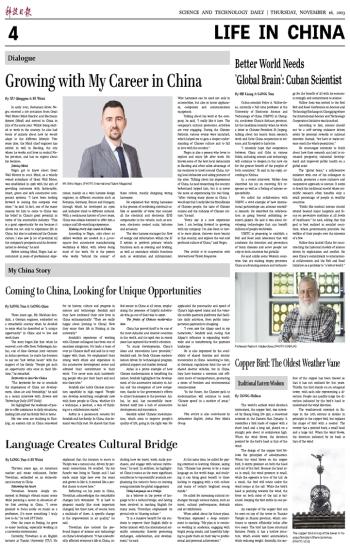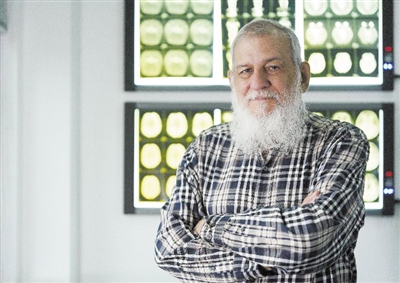
 |
| Professor Pedro A. Valdes-Sosa. (PHOTO: XINHUA) |
Cuban scientist Pedro A. Valdes-Sosa, currently a full-time professor at the University of Electronic Science and Technology of China (UESTC) in Chengdu, southwest China's Sichuan province, hit the headlines recently when he wrote a letter to Chinese President Xi Jinping, talking about his team's brain research work and Cuba-China cooperation in science, and Xi replied to his letter.
"I sincerely hope that cooperation between China and Cuba in various fields, including science and technology, will continue to deepen in the new era for the greater benefit of the peoples of both countries," Xi said in his reply, according to Xinhua.
In a recent interview, Valdes-Sosa described his joy on receiving Xi's response as well as a feeling of intense responsibility.
He called his collaboration with UESTC a vivid example of how international partnerships can advance scientific research. He described the collaboration as going beyond publishing research papers. He said it was about developing technologies that can benefit millions of people worldwide.
UESTC is proposing to establish a Belt and Road joint laboratory that will accelerate the detection and prevention of brain diseases and serve people not only in both countries but globally.
He said unlike some Western countries that are making empty promises, China is advancing science and technology for the benefit of all with its economic strength and commitment to science.
Valdes-Sosa was invited to the first Belt and Road Conference on Science and Technology Exchange in Chongqing where the International Science and Technology Cooperation Initiative was launched.
According to him, science should not be a self-serving endeavor driven solely by personal rewards or national interests. Instead, "we have to make science reach the whole population."
He encourages scientists to think about how their research can lead to increased prosperity, industrial development and improved public health on a global scale.
The "global brain," a collaborative initiative with one of his colleagues in Canada, promotes a more inclusive and cooperative approach to science. It seeks to break the traditional model where scientific research often benefits only a small percentage of people in wealthy countries.
"Fields like medical science should extend beyond major hospitals and focus on preventive medicine at all levels of healthcare," he said, adding that this goal is best realized in socialist countries, where governments prioritize the welfare of their people over the interests of a few.
Valdes-Sosa lauded China for counteracting the historical models of science driven by exploitation and conflict. He sees China's commitment to international collaboration and the Belt and Road Initiative as a pathway to "a better world."







